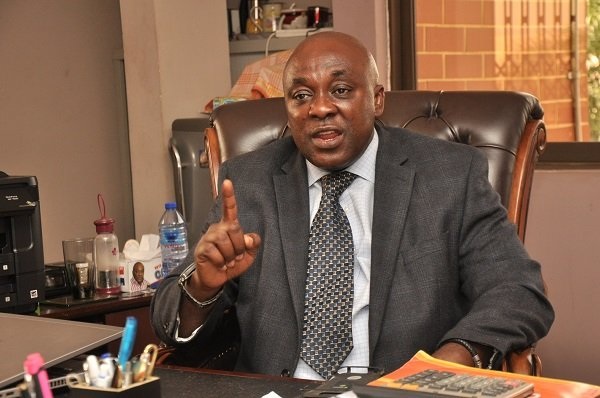A policy to stimulate the growth of Micro,Small and Medium Enterprises (MSMEs) to produce world-class products and services capable of competing locally and internationally is before Cabinet for consideration.
When approved, the national MSMEs policy will provide the administrative, regulatory, institutional and legal framework for the growth and development of the sector.
Speaking to the media after the opening of the business forum on August 14 in Accra, a deputy Minister of Trade and Industry, Mr Carlos Kingsley Ahenkorah, observed that the new policy would also provide a supportive enabling environment and interventions of technology transfer, entrepreneurial culture, skills development, access to finance and market facilitation.
"It will be a government tool to coordinate and consolidate public resources to provide clear guidelines and the needed regulatory framework to businesses, prospective investors, development partners, financial institutions, service providers and other stakeholders to promote the development of the MSME sector," he noted.
The forum
On the theme ‘Formalising the Informal Sector — Practical Steps to Promote Local Economic Development,’ the business forum was an initiative of the National Board for Small Scale Industries (NBSSI) in partnership with the Christian Aid.
It offered an opportunity for industry players to share knowledge on how best to help formalise the country's informal sector to support the economy.
Mr Ahenkorah stated that the influx of citizens into the informal sector could be attributed largely to the inability of both the government and firms in the private sector to generate the required number of jobs.
He said the sector had been faced with a lot of challenges such as the poor use of technology, non-existing database of businesses due to the low level of registration of MSMEs, poor financial account of businesses, managerial problems and lack of international exposure.
“These challenges have thwarted the steady progress and growth of MSMEs in the country and has gone a long way to affect their full potential to contribute to Gross Domestic Product (GDP) growth, employment, taxation and poverty alleviation,” he said.
Key measures
The Executive Director of the NBSSI, Mrs Kosi Yankey Ayeh, observed that key measures were presently being implemented at the district level to develop the informal sector into a formal status.
“If the country will be able to move beyond aid, it needs to pay closer attention to the informal sector and ensure it is more equipped and prepared to strengthen the economic development of Ghana.
“We are very excited about the development to formalise the informal sector and we hope that through this formalisation, more jobs will be created for the youth,” she said.
Contribution of MSMEs
The Country Director of Christian Aid, Mr Kobina Yeboah Okyere, in a speech read on his behalf, indicated that MSMEs were considered the engine of growth of developing countries.
He said the sector was the backbone of Ghana’s economy.
According to him, MSMEs accounted for more than 92 per cent of businesses in the country and contributed close to 70 per cent to GDP.
“They are a major driving force for job creation, income generation and business development in the country.”
